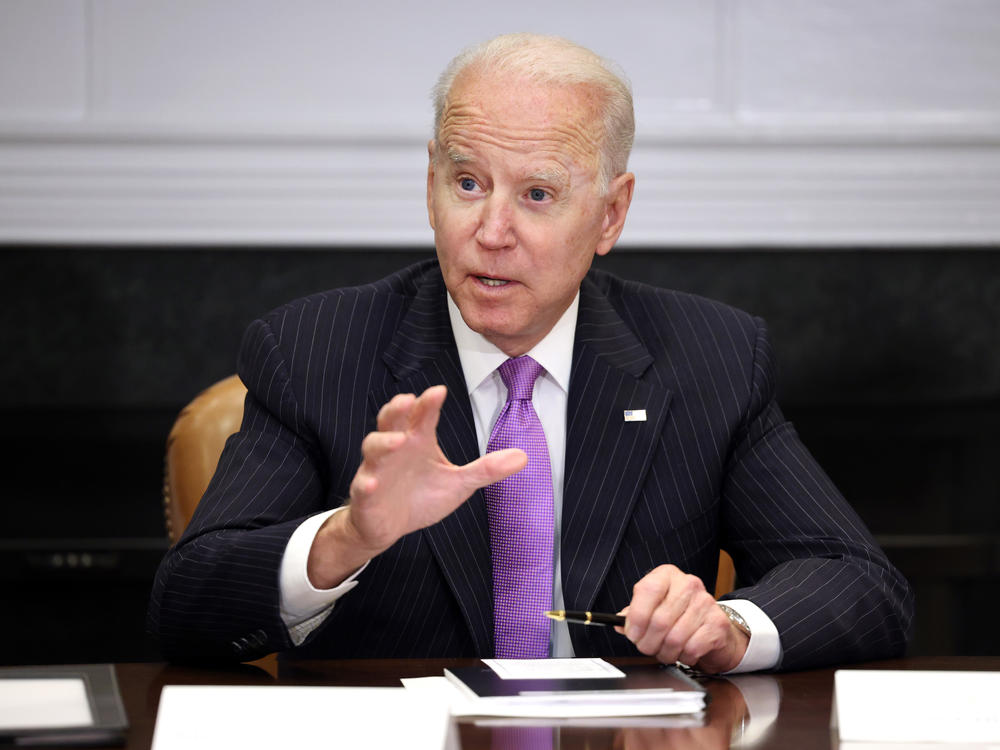Section Branding
Header Content
Biden Moves To Restrict Noncompete Agreements, Saying They're Bad For Workers
Primary Content
President Biden is making good on a campaign promise to curtail noncompete agreements.
As part of a sweeping executive order, Biden is asking the Federal Trade Commission to ban or limit such agreements, which restrict where you can work after leaving a job.
The move is part of a larger push from the administration to promote competition and remove barriers that stymie economic growth. The White House argues that noncompetes drive down wages by making it harder for workers to switch to better-paying jobs.
Meanwhile, businesses who support the use of noncompete agreements say they are vital for protecting trade secrets and investments.
States have traditionally regulated the issue
To date, the regulation of noncompete agreements has been left to states. Three states — California, North Dakota and Oklahoma — already ban noncompete agreements, and close to a dozen states prohibit their use with low wage workers.
Biden's newly confirmed FTC Chair Lina Khan has argued in favor of federal rules targeting anti-competitive practices including noncompetes, writing in a law journal in 2019 that such clauses "deter workers from switching employers, weakening workers' credible threat of exit, and diminishing their bargaining power."
But a sweeping federal rule would be a significant departure and is expected to be challenged by businesses. At a workshop held by the FTC in January 2020, questions were raised over whether the agency even has the authority to enact a ban. Given the likelihood of legal challenges, some expect the FTC to take a narrow approach, for example banning noncompete agreements for low-wage workers rather than for everyone.
"I think a considered approach would probably be the likely approach," says Russell Beck, a Boston attorney who has represented both employers and employees in noncompete cases.
He says he'd be very surprised if the FTC went so far as to ban noncompetes for workers who possess trade secrets or other confidential information that warrants protection.
Noncompete agreements are widely used in the private sector
The White House estimates that noncompete agreements are used by roughly half of private-sector businesses for at least some of their employees, affecting anywhere between 36 million and 60 million workers. The numbers come from a 2019 report from the left-leaning Economic Policy Institute, which surveyed 634 employers.
The report found that while businesses with well-paid, highly educated workers are more likely to use noncompetes, the agreements were not uncommon in sectors dominated by low-wage workers. Almost 30% of establishments offering an average hourly wage below $13 require noncompetes for all their workers, the survey found.
Famously, the sandwich chain Jimmy John's agreed to stop using noncompetes in 2016 after being sued in New York and Illinois. The chain had prohibited its sandwich-makers and drivers from working for another sandwich shop within a 3-mile radius of any Jimmy John's in the country.
Noncompetes are still fairly common in construction, manufacturing and retail, the EPI survey found. And workers bound by them often enter jobs unaware of the requirement. Almost a third of businesses surveyed said they ask new employees to sign the agreements after they've accepted the job, often on their first day of work.
Employers are using noncompetes even in states where they're banned
Even in states that ban noncompetes, companies have continued to include them in employment contracts, an issue that economist Evan Starr of the University of Maryland hopes the FTC will address.
"I think the focus should be on trying to deter their use in the first place," says Starr, instead of just making them unenforceable.
In his research, Starr has found that many workers are unaware of state laws prohibiting noncompetes, so when faced with threatening letters from their employers they are unlikely to put up a challenge.
Unlike Beck, Starr anticipates the FTC will issue a ban on noncompetes covering most workers. He says banning them for low-wage workers is largely uncontroversial, and there is growing evidence that a ban would benefit high-skilled workers as well.
Copyright 2021 NPR. To see more, visit https://www.npr.org.

